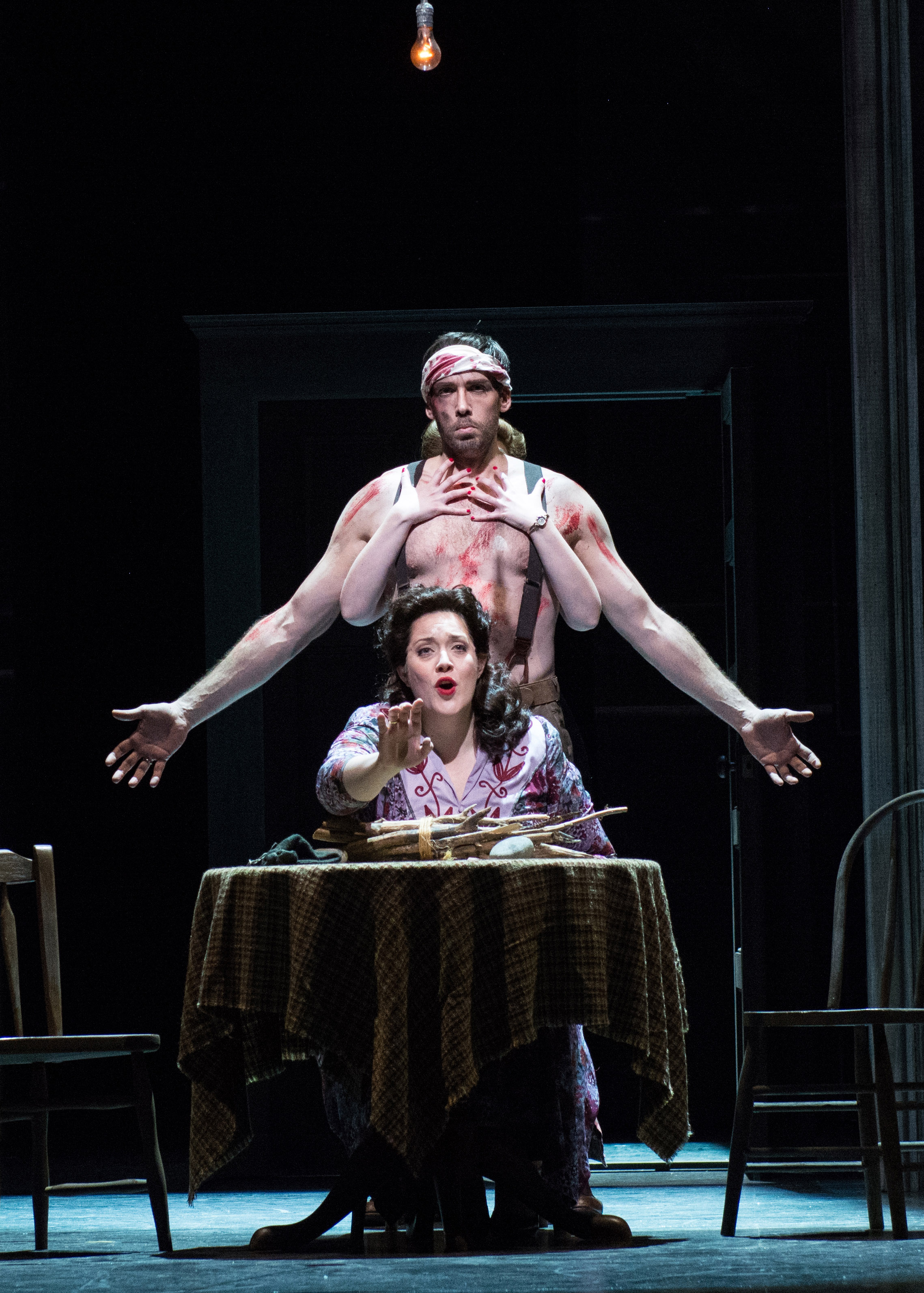The Consul
McCaw Hall, Seattle Center, 389-7676, seattleopera.org. $25 and up. 7:30 p.m. Wed., Fri., & Sat. Ends March 7.
“To admit prejudices can be helpful,” wrote critic Virgil Thomson in his autobiography as part of a primer of sorts for those in his profession. So I won’t pretend I’ve ever felt much affection for the work of Gian Carlo Menotti, America’s most active and popular mid-20th-century opera composer. Still, I was startled to rediscover, after a couple decades away from his 1950 The Consul, what a false and exploitative piece it is.
Not even Seattle Opera’s solid and handsome production, which opened Saturday, and not even the grandly committed performance of lead soprano Marcy Stonikas, could persuade me that Menotti meant a word of what he wrote in his tale of a woman—Magda Sorel, the wife of freedom fighter John—encountering police brutality and stonewalling bureaucracy in an unnamed Eastern Bloc-y nation. The Consul (the title refers to the ominously unseen figure to whom Magda applies for asylum) is less—far less—an opera about political oppression than an opera that uses political oppression for its own ends, which seem to be merely to make an audience twitch like a wired laboratory frog.
Why is there a lush, Technicolor, end-credits orchestral entr’acte leading into our first view of the Consul’s gray office, a file-cabineted nightmare straight out of Brazil ? To establish the mood? Fail. Why the embarrassing attempts at comic relief (the Consul’s secretary flirting on the phone; an onstage magic act)? Because the subject warrants them? Fail. And why, for God’s sake, is there a baby who serves no dramatic function at all except to die in Act 2 and yank our chain? Because none of Menotti’s characters (he wrote the libretti as well as the music) are fully realized human beings. The paper-thin Magda is courageous and unhappy, but we learn nothing more about her, and no one else onstage gets even that much characterization; they’re types, symbols, plywood set pieces to be pushed around.
The proof is in the final insult: After two hours of torment, Menotti cannot even grant Magda a dignified death, interrupting her suicide attempt with a ridiculous hallucinatory dream ballet in which her mother returns from the dead to announce she’s marrying John (WTF?); and the magician—a character completely gratuitous in terms of the opera’s larger theme—gets the last word.
So it’s not enough that The Consul is an inch-deep trivialization of one of the most momentous and agonizing events of the modern era, Eastern Europe’s (ongoing) struggle against totalitarianism. (One can imagine Menotti in the late ’40s mulling his next project: What can I write about that’ll really pack ’em in? . . . I know! Human-rights violations! ) Menotti, astonishingly, managed to ratchet up the outrage even further: He wrote an opera ostensibly about the horrors of dehumanization in which the empty characters exist only to be manipulated for his ulterior motives. That’s one hell of a sick irony.
As a composer, Menotti had a talent for building urgent and forward-driving ensembles; for ear-tickling orchestration; for opulent sonic wallows (it’s corn syrup, but it’s tasty). As a dramatist he was a hypocrite and a fraud—with, by the way, a streak of misogyny (recalling, among other examples, his libretto for Samuel Barber’s 1958 opera Vanessa; or, a Woman Without a Man Is Totally Worthless) that makes Puccini look like Oprah. As a stage work, The Consul is contemptible from top to bottom.
gborchert@seattleweekly.com







